Wimar Witoelar 
Personal reflections on Gus Dur, a national hero
Wimar Witoelar
First there was the shock and disbelief. We heard the news of Gus Dur's passing away from two telephone calls my friends received as we were heading home from a routine work day. We immediately swung the car around in the direction of the Cipto Mangunkusumo Hospital in the absence of immediate information as to where his whereabouts. It turned out we were correct in our guess. So often had we rushed to his hospital bed in recent years and so often had we been greeted by Gus Dur's infallible wit, that I was hoping against hope the bad news was a mistake.
Unfortunately it was true, and as I stepped down from the car we were besieged by reporters and klieg lights of television and photographers. For the first time I was uncomfortable with the media attention. This was a private moment, I thought, and I had nothing to say. Several black-dressed guards came out from nowhere and escorted us through endless hallways until we were rushed into the small bed with a scene that will be forever etched in my memory. Gus Dur in a shapeless mass under deep cover, his family devastated by the family tragedy. Four of the staunchest women totally helpless with the loss of the man who issues and accepts love so easily and elegantly.
Then there was the sadness as the realization crept in. We had to find within us acceptance of the inevitable, and that was made easier by looking at the big picture. Gus Dur often says that length of life is irrelevant compared to the continuity of mission. I began to realize it is very true, as he is gone but he is leaving us with a true legacy
He had less than two years in the office of presidency when he was ousted by a political cabal. Had he been more realistic in his politics, he could easily have survived a full term or more. But I witnessed how uncompromising he was. His position is so clear that it did not take much of an effort for me to support his consistently. I personally listened to overtures from Golkar who had what they called a "win-win" situation whereby GD would maintain the presidency but share power with political parties. But Gus Dur explained that compromise would make all his efforts pointless. His quest for pluralism, democracy and clean government urgently calls for consistency. That is the path that he chose, respecting the people’s call for clarity above expediency.
President Abdurrahman Wahid had an unsuccessful presidency but he has successfully established national values of tolerance and equality that today define democracy in Indonesia. His values have lived on. The things we are praised now for being. The pluralism that has become the showcase items for Indonesia attracts laudatory comments from all over the world. he notion that Chinese descendants and other minorities are equal, their holidays being celebrated, and original names no longer required to be substituted by those acceptable to the majority. the religious tolerance that bring us fantastic Christmas carols in the malls of a predominantly Muslim country are all the fruits grown from seedlings Gus Dur planted in his presidency of 1999-2001.
It became clear as President Wahid faced a recalcitrant parliament and big political money to resist tough anti-corruption measures that Gus Dur faced a sharp choice in mid-2001. Work on a political coalition to sustain his presidency, or stay on track with true grit and keep the reformist agenda clear. The rest is history. In the face of forbidding political odds the president replaced Marzuki Darusman with Baharuddin Lopa as Attorney General. Darusman is a well-regarded man with more than a modicum of reformist intent, but the cabinet needed to speed up the arrest of major corrupt people. Baharuddin Lopa was chosen, a man as fearless as was clean. The nation was shocked when Lopa died in a trip overseas less than a month in the top. He was replaced by Marsillam Simandjuntak, favored since the beginning as a tough reformer with top qualifications. He served an equally short time, a little more than a month, as Gus Dur’s political defenses crumbled when it was clear he would not cave in to demands for compromise.
The presidential term was just a planting season. The seeds had been cultivated long before that, when he exercised his values on a complex society using leadership positions less prominent than the presidency. When he was prematurely terminated from office he had already laid the strategic foundations for a pluralistic democracy. Lest we degrade ourselves into a personality cult, let it be emphasized in a resounding manner that the values Gus Dur stands for are embedded in our society. They are alive but dormant because of first of all suppression by previous regimes, and as that regime imploded an uncertainty among the good people still kept us from coming out with our true values, Pluralism, democracy, tolerance are the way of life of the majority in our society. They had been forced into inactive mode because of the compelling force of political pressure. But it took Gus Dur to bring those values out of deep freeze. Or in the words that Gus Dur used on the back cover of my book "No Regrets": We don't want a president like Gus Dur. We want Gus Dur as president.
People tend to focus on the political turbulence of Gus Dur's presidency to the degree that many miss the real story, which I call without hyperbole the story of Indonesia's awakening. But the results speak for themselves. Gus Dur gave up his presidency for the people, staying true to the moniker ‘People’s Presidency.’ He gave up the presidency for the ideals. He gave a life to his nation.
Wimar Witoelar is the writer of "No Regrets",
a personal account of his days as spokesman for President Abdurrahman Wahid
First there was the shock and disbelief. We heard the news of Gus Dur's passing away from two telephone calls my friends received as we were heading home from a routine work day. We immediately swung the car around in the direction of the Cipto Mangunkusumo Hospital in the absence of immediate information as to where his whereabouts. It turned out we were correct in our guess. So often had we rushed to his hospital bed in recent years and so often had we been greeted by Gus Dur's infallible wit, that I was hoping against hope the bad news was a mistake.
Unfortunately it was true, and as I stepped down from the car we were besieged by reporters and klieg lights of television and photographers. For the first time I was uncomfortable with the media attention. This was a private moment, I thought, and I had nothing to say. Several black-dressed guards came out from nowhere and escorted us through endless hallways until we were rushed into the small bed with a scene that will be forever etched in my memory. Gus Dur in a shapeless mass under deep cover, his family devastated by the family tragedy. Four of the staunchest women totally helpless with the loss of the man who issues and accepts love so easily and elegantly.
Then there was the sadness as the realization crept in. We had to find within us acceptance of the inevitable, and that was made easier by looking at the big picture. Gus Dur often says that length of life is irrelevant compared to the continuity of mission. I began to realize it is very true, as he is gone but he is leaving us with a true legacy
He had less than two years in the office of presidency when he was ousted by a political cabal. Had he been more realistic in his politics, he could easily have survived a full term or more. But I witnessed how uncompromising he was. His position is so clear that it did not take much of an effort for me to support his consistently. I personally listened to overtures from Golkar who had what they called a "win-win" situation whereby GD would maintain the presidency but share power with political parties. But Gus Dur explained that compromise would make all his efforts pointless. His quest for pluralism, democracy and clean government urgently calls for consistency. That is the path that he chose, respecting the people’s call for clarity above expediency.
President Abdurrahman Wahid had an unsuccessful presidency but he has successfully established national values of tolerance and equality that today define democracy in Indonesia. His values have lived on. The things we are praised now for being. The pluralism that has become the showcase items for Indonesia attracts laudatory comments from all over the world. he notion that Chinese descendants and other minorities are equal, their holidays being celebrated, and original names no longer required to be substituted by those acceptable to the majority. the religious tolerance that bring us fantastic Christmas carols in the malls of a predominantly Muslim country are all the fruits grown from seedlings Gus Dur planted in his presidency of 1999-2001.
It became clear as President Wahid faced a recalcitrant parliament and big political money to resist tough anti-corruption measures that Gus Dur faced a sharp choice in mid-2001. Work on a political coalition to sustain his presidency, or stay on track with true grit and keep the reformist agenda clear. The rest is history. In the face of forbidding political odds the president replaced Marzuki Darusman with Baharuddin Lopa as Attorney General. Darusman is a well-regarded man with more than a modicum of reformist intent, but the cabinet needed to speed up the arrest of major corrupt people. Baharuddin Lopa was chosen, a man as fearless as was clean. The nation was shocked when Lopa died in a trip overseas less than a month in the top. He was replaced by Marsillam Simandjuntak, favored since the beginning as a tough reformer with top qualifications. He served an equally short time, a little more than a month, as Gus Dur’s political defenses crumbled when it was clear he would not cave in to demands for compromise.
The presidential term was just a planting season. The seeds had been cultivated long before that, when he exercised his values on a complex society using leadership positions less prominent than the presidency. When he was prematurely terminated from office he had already laid the strategic foundations for a pluralistic democracy. Lest we degrade ourselves into a personality cult, let it be emphasized in a resounding manner that the values Gus Dur stands for are embedded in our society. They are alive but dormant because of first of all suppression by previous regimes, and as that regime imploded an uncertainty among the good people still kept us from coming out with our true values, Pluralism, democracy, tolerance are the way of life of the majority in our society. They had been forced into inactive mode because of the compelling force of political pressure. But it took Gus Dur to bring those values out of deep freeze. Or in the words that Gus Dur used on the back cover of my book "No Regrets": We don't want a president like Gus Dur. We want Gus Dur as president.
People tend to focus on the political turbulence of Gus Dur's presidency to the degree that many miss the real story, which I call without hyperbole the story of Indonesia's awakening. But the results speak for themselves. Gus Dur gave up his presidency for the people, staying true to the moniker ‘People’s Presidency.’ He gave up the presidency for the ideals. He gave a life to his nation.
















